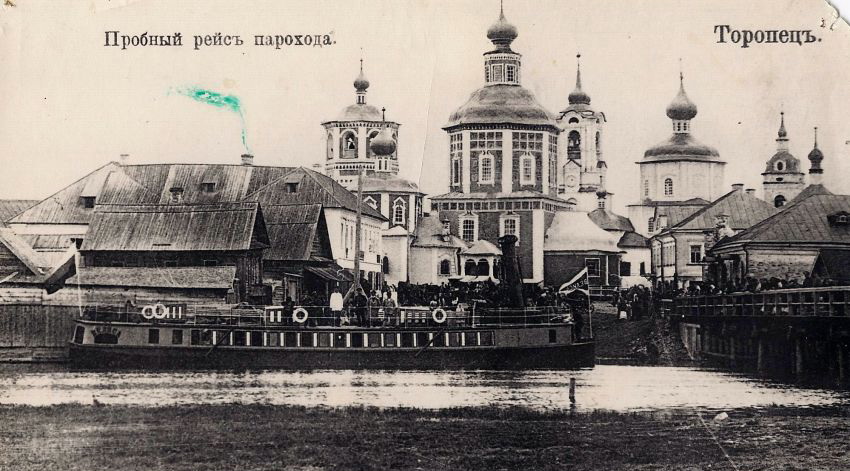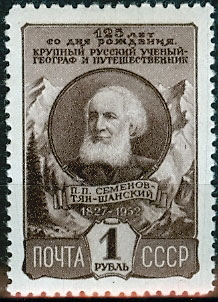|
Pyotr Ivanovich Ricord
Pyotr Ivanovich Ricord, also Petr Rikord (; – ) was a Russian admiral, traveller, scientist, diplomat, writer, shipbuilder, statesman, and public figure. Pyotr Ricord was born in 1776 in the family of the prime major of Carabinier Ingermanland Regiment; he graduated from the Sea Cadet Corps; he began military service in the Baltic Fleet and got his first war decoration for the distinction in the landing operation on the coast of the Netherlands in 1799, it was the 4th class of the Order of St. Anne. In 1803–1805 among the twelve best naval officers, he was sent as a volunteer to the British Fleet to improve Russian maritime practices. At that time he made sea trips to almost all British maritime dominions and took part in the war with France and Spain. In 1807–1809 Ricord took part as a senior officer in Vasily Golovnin's world cruise on the ship ''Diana''. He was awarded with the Order of St. Vladimir, 4th class "for the excellent performance of his office on the ... [...More Info...] [...Related Items...] OR: [Wikipedia] [Google] [Baidu] |
Toropets
Toropets () is a town and the administrative center of Toropetsky District in Tver Oblast, Russia, located where the Toropa River enters Lake Solomennoye. Population: History In 1074, when the town was first mentioned in chronicles, Toropets belonged to the Princes of Smolensk. By 1167, it was large enough to have its own princes. The most famous of its rulers was Mstislav the Bold, whose grandson Alexander Nevsky wed Alexandra of Polotsk in Toropets in 1239. In the mid-14th century the town passed to the Grand Duchy of Lithuania, which had to surrender it to Ivan III following the Battle of Vedrosha in 1503. In the early 17th century, Toropets was ransacked by the Polish army. In the course of the administrative reform carried out in 1708 by Peter the Great, Toropets was included into Ingermanland Governorate (known since 1710 as Saint Petersburg Governorate). In 1727, separate Novgorod Governorate was split off. Toropets was included into Velikiye Luki ... [...More Info...] [...Related Items...] OR: [Wikipedia] [Google] [Baidu] |
Dardanelles
The Dardanelles ( ; ; ), also known as the Strait of Gallipoli (after the Gallipoli peninsula) and in classical antiquity as the Hellespont ( ; ), is a narrow, natural strait and internationally significant waterway in northwestern Turkey that forms part of the continental boundary between Asia and Europe and separates Asian Turkey from European Turkey. Together with the Bosporus, the Dardanelles forms the Turkish Straits. One of the world's narrowest straits used for International waterway, international navigation, the Dardanelles connects the Sea of Marmara with the Aegean Sea, Aegean and Mediterranean Sea, Mediterranean seas while also allowing passage to the Black Sea by extension via the Bosporus. The Dardanelles is long and wide. It has an average depth of with a maximum depth of at its narrowest point abreast the city of Çanakkale. The first fixed crossing across the Dardanelles opened in 2022 with the completion of the 1915 Çanakkale Bridge. Most of the northe ... [...More Info...] [...Related Items...] OR: [Wikipedia] [Google] [Baidu] |
People From Toropetsky District
The term "the people" refers to the public or common mass of people of a polity. As such it is a concept of human rights law, international law as well as constitutional law, particularly used for claims of popular sovereignty. In contrast, a people is any plurality of persons considered as a whole. Used in politics and law, the term "a people" refers to the collective or community of an ethnic group or nation. Concepts Legal Chapter One, Article One of the Charter of the United Nations states that "peoples" have the right to self-determination. Though the mere status as peoples and the right to self-determination, as for example in the case of Indigenous peoples (''peoples'', as in all groups of indigenous people, not merely all indigenous persons as in ''indigenous people''), does not automatically provide for independent sovereignty and therefore secession. Indeed, judge Ivor Jennings identified the inherent problems in the right of "peoples" to self-determination, as i ... [...More Info...] [...Related Items...] OR: [Wikipedia] [Google] [Baidu] |
1855 Deaths
Events January–March * January 1 – Ottawa, Ontario, is incorporated as a city.' * January 5 – Ramón Castilla begins his third term as President of Peru. * January 23 ** The first bridge over the Mississippi River opens in modern-day Minneapolis, a predecessor of the Father Louis Hennepin Bridge. ** The 8.2–8.3 Wairarapa earthquake claims between five and nine lives near the Cook Strait area of New Zealand. * January 26 – The Point No Point Treaty is signed in the Washington Territory. * January 27 – The Panama Railway becomes the first railroad to connect the Atlantic and Pacific Oceans. * January 29 – Lord Aberdeen resigns as Prime Minister of the United Kingdom, over the management of the Crimean War. * February 5 – Lord Palmerston becomes Prime Minister of the United Kingdom. * February 11 – Kassa Hailu is crowned Tewodros II, Emperor of Ethiopia. * February 12 – Michigan State University (the "pioneer ... [...More Info...] [...Related Items...] OR: [Wikipedia] [Google] [Baidu] |
1776 Births
Events January–February * January 1 – American Revolutionary War – Burning of Norfolk: The town of Norfolk, Virginia is destroyed, by the combined actions of the Kingdom of Great Britain, British Royal Navy and occupying Patriot (American Revolution), Patriot forces. * January 10 – American Revolution – Thomas Paine publishes his pamphlet ''Common Sense (pamphlet), Common Sense'', arguing for independence from British rule in the Thirteen Colonies. * January 20 – American Revolution – South Carolina Loyalist (American Revolution), Loyalists led by Robert Cunningham sign a petition from prison, agreeing to all demands for peace by the formed state government of South Carolina. * January 24 – American Revolution – Henry Knox arrives at Cambridge, Massachusetts, with the Noble train of artillery, artillery that he has transported from Fort Ticonderoga. * February 17 – Edward Gibbon publishes the first volume of ''The Hi ... [...More Info...] [...Related Items...] OR: [Wikipedia] [Google] [Baidu] |
Peter The Great Gulf
The Peter the Great Gulf (Russian: Залив Петра Великого) is a gulf on the southern coast of Primorsky Krai, Russia, and the largest gulf of the Sea of Japan. The gulf extends for from the Russian–North Korean border, at the mouth of the Tumen River in the west, across to Cape Povorotny in the east, and its bays reach inland. Vladivostok (the largest city and capital of Primorsky Krai) and Nakhodka (the third-largest city in the krai) are located along the Gulf coast. Geography and nature The Peter the Great Gulf has a coastline of about , with the largest bay of the gulf, at about , divided by the Muravyov-Amursky Peninsula and the Eugénie Archipelago into the major bays of Amur Bay to the west and the Ussuri Bay to the east. The coast is indented by many smaller, minor bays, including Posyet Bay, Zolotoy Rog (the "Golden Horn") and Diomede Bay, in the west, Lazurnaya Bay (the "Shamora", with its sandy beaches), at the Muravyov-Amursky Peninsul ... [...More Info...] [...Related Items...] OR: [Wikipedia] [Google] [Baidu] |
Rikord Island
Rikord Island (Russian: ''Остров Рикорда'') is an island in Peter the Great Gulf located to the south of Zolotoy Rog and to the south of Reyneke Island. It was named after admiral Pyotr Rikord. With an area of nearly , it is the largest uninhabited island of Primorsky Krai Primorsky Krai, informally known as Primorye, is a federal subjects of Russia, federal subject (a krais of Russia, krai) of Russia, part of the Far Eastern Federal District in the Russian Far East. The types of inhabited localities in Russia, .... Administratively the island is under Vladivostok's jurisdiction. The highest point is 178 m above sea level. The island is a part of Eugénie de Montijo Archipelago. Notes Uninhabited islands of Russia Islands of the Sea of Japan Islands of Vladivostok Peter the Great Gulf {{PrimorskyKrai-geo-stub ... [...More Info...] [...Related Items...] OR: [Wikipedia] [Google] [Baidu] |
Pyotr Semyonov-Tyan-Shansky
Pyotr Petrovich Semyonov or Semenov (; 2 January ''(New style: 14 January)'', 1827 – 26 February ''(New style: 11 March)'', 1914) was a Russian geographer and statistician who managed the Russian Geographical Society for more than 40 years. He gained international fame for his pioneering exploration of the Tian Shan mountains. He changed his surname to "Semyonov of Tian Shan" (Семёнов-Тян-Шанский, ''Semyonov-Tyan-Shansky'') at the age of 79. Several of his descendants, including a son, Andrey Semyonov-Tyan-Shansky, and a grandson Oleg Semenov-Tian-Shansky became scientists of note. Life Pyotr Semenov was born into a noble family and studied at Saint Petersburg University. Together with Fyodor Dostoyevsky, Semenov attended secret meetings of the "Petrashevsky Circle" (a literary discussion group of progressive-minded commoner-intellectuals in St. Petersburg). During the 1850s he studied geography and geology in Berlin under Alexander Humboldt and Carl R ... [...More Info...] [...Related Items...] OR: [Wikipedia] [Google] [Baidu] |
Saint Petersburg
Saint Petersburg, formerly known as Petrograd and later Leningrad, is the List of cities and towns in Russia by population, second-largest city in Russia after Moscow. It is situated on the Neva, River Neva, at the head of the Gulf of Finland on the Baltic Sea. The city had a population of 5,601,911 residents as of 2021, with more than 6.4 million people living in the Saint Petersburg metropolitan area, metropolitan area. Saint Petersburg is the List of European cities by population within city limits, fourth-most populous city in Europe, the List of cities and towns around the Baltic Sea, most populous city on the Baltic Sea, and the world's List of northernmost items#Cities and settlements, northernmost city of more than 1 million residents. As the former capital of the Russian Empire, and a Ports of the Baltic Sea, historically strategic port, it is governed as a Federal cities of Russia, federal city. The city was founded by Tsar Peter the Great on 27 May 1703 on the s ... [...More Info...] [...Related Items...] OR: [Wikipedia] [Google] [Baidu] |
Russian Geographical Society
The Russian Geographical Society (), or RGO, is a learned society based in Saint Petersburg, Russia. It promotes geography, exploration and nature protection with research programs in fields including oceanography, ethnography, ecology and statistics. History Imperial Geographical Society The society was founded in Saint Petersburg, Russia on 6 (18) August 1845. Prior to the Russian Revolution of 1917, it was known as the Imperial Russian Geographical Society. The order to establish the society came directly from Emperor Nicholas I. The motive for the establishment was to encourage geographical research on domestic topics, which has later been described as a Russian nationalist political goal. The filial societies were established at the Caucasus (1850), Irkutsk (1851), Vilnius (1867), Orenburg (1868), Kiev (1873), Omsk (1877), and other cities. The Society organized and funded the expeditions of Richard Maack, Pyotr Kropotkin, Semyonov-Tyan-Shansky, Nikolai Przhevalsky, ... [...More Info...] [...Related Items...] OR: [Wikipedia] [Google] [Baidu] |
Crimean War
The Crimean War was fought between the Russian Empire and an alliance of the Ottoman Empire, the Second French Empire, the United Kingdom of Great Britain and Ireland, and the Kingdom of Sardinia (1720–1861), Kingdom of Sardinia-Piedmont from October 1853 to February 1856. Geopolitical causes of the war included the "Eastern question" (Decline and modernization of the Ottoman Empire, the decline of the Ottoman Empire, the "sick man of Europe"), expansion of Imperial Russia in the preceding Russo-Turkish wars, and the British and French preference to preserve the Ottoman Empire to maintain the European balance of power, balance of power in the Concert of Europe. The flashpoint was a dispute between France and Russia over the rights of Catholic Church, Catholic and Eastern Orthodox Church, Orthodox minorities in Palestine (region), Palestine. After the Sublime Porte refused Nicholas I of Russia, Tsar Nicholas I's demand that the Empire's Orthodox subjects were to be placed unde ... [...More Info...] [...Related Items...] OR: [Wikipedia] [Google] [Baidu] |





